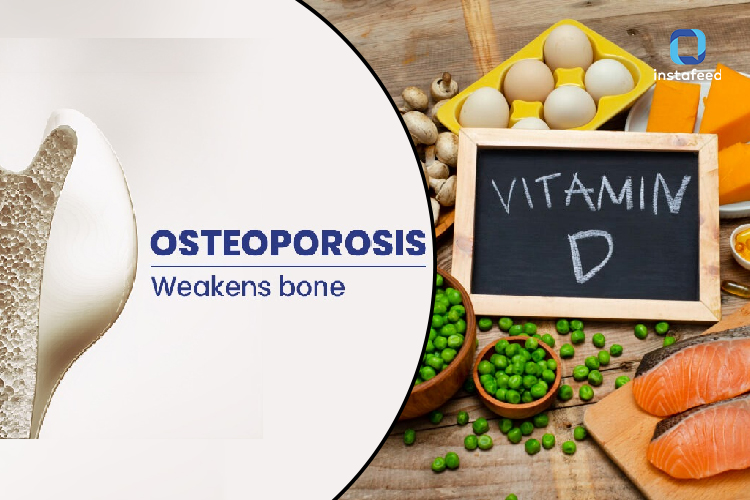Understanding the Benefits of Vitamin D for Osteoporosis
Vitamin D, a fat-soluble vitamin, plays a crucial role in maintaining bone strength. Sufficient daily intake of vitamin D may help reduce the risk of complications associated with osteoporosis, such as fractures.

Osteoporosis is a condition characterized by weak and porous bones. Vitamin D is believed to have beneficial effects on osteoporosis because it is involved in bone growth and remodeling.
The human body continuously breaks down old bone and replaces it. Osteoporosis occurs when there is an imbalance, and the body breaks down more bone than it can replace, resulting in weaker and less dense bones.
Vitamin D, a fat-soluble vitamin, plays a crucial role in maintaining bone strength. Sufficient daily intake of vitamin D may help reduce the risk of complications associated with osteoporosis, such as fractures.
Research Supporting the Benefits of Vitamin D for Osteoporosis
Research suggests that vitamin D supplementation, with a daily dose of 800-1,000 international units (IU), is associated with a lower risk of fractures. Clinical trials have also shown that treatment with vitamin D supplements can improve bone density indices in individuals with osteoporosis.
To ensure adequate vitamin D intake, recommended daily amounts vary depending on age groups. For example, infants need around 400 IU (10 micrograms) per day, while adults aged 19-70 require 600 IU (15 micrograms) per day. Pregnant or nursing individuals are advised to consume 600 IU (15 micrograms) per day. The International Osteoporosis Foundation recommends a supplemental dose of 800-1,000 IU daily for individuals aged 60 and above to support bone health, particularly in those with osteoporosis.
While sunlight exposure contributes to 70-80% of vitamin D synthesis in the body, only a few foods naturally contain vitamin D. Fatty fish like trout, salmon, tuna, and mackerel, as well as fish liver oils, are excellent dietary sources. Some mushrooms are also enriched with vitamin D through UV light treatment. Other foods with lower vitamin D content include beef liver, egg yolks, cheese, and fortified milk and plant-based milk alternatives like soy milk, almond milk, and oat milk.
In addition to dietary sources, vitamin D supplements can be taken to prevent and treat osteoporosis. These supplements help strengthen bones and reduce the risk of fractures, particularly in individuals with osteoporosis.
Lifestyle Changes for Managing Osteoporosis
Lifestyle changes are also recommended for managing osteoporosis. Quitting smoking, reducing caffeine and alcohol consumption, engaging in regular physical activity, and maintaining a moderate weight can all contribute to better bone health.
Osteoporosis is often referred to as a "silent" disease because symptoms are typically absent until a person experiences a fracture. If a fracture occurs, it is advisable to seek medical attention, as it may indicate the presence of osteoporosis.
In summary, osteoporosis weakens bones, but vitamin D can aid in maintaining bone strength. Vitamin D supplements or a diet rich in vitamin D can be beneficial for individuals with osteoporosis. Including foods like fatty fish, fish liver oils, and mushrooms in the diet can help increase vitamin D intake. Additionally, making lifestyle changes such as quitting smoking, reducing caffeine and alcohol consumption, and staying physically active can contribute to better bone health.







